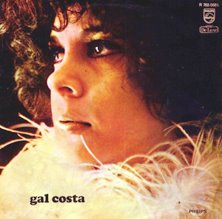It took the media long enough. Last friday I was looking at my screen saver, a program that flashes recent news headlines and there it appeared: a headline that made me almost fall out of my chair. Time magazine had finally gone there—asked the unaskable. Or rather they raised the fact that the question was being asked. The often thought but never uttered question. We asked it of Jesse Jackson and Colin Powell, we've even enteratained it about Condoleeza Rice. The one question about Obama that dares not speak its name in polite public discourse. If you're black you know what I'm talking about, even if you wouldn't write a blog about it. If you're white, you probably know that we're asking the question, but what you don't know is that we've been asking it from two years ago. And not just about Obama, but Harold Ford as well.
How long will it be before they try to kill him?
There. I've said it. It's been said.
And if you're black and have never thought of this question you're lying. Martin Luther King was to many Americans too much of an Icarus waiting to happen. In hindsight, the only thing shocking about his assassination was how inevitable it now seems; how likely—as if the American extremist element, like the Taliban or Al Qaeda would stomach much longer a black man impacting popular consciousness. Obama, on paper at least stands for something even more outrageous, a possibility, and a real one that someday is today and we may have really overcome. If that's a fairy tale for many blacks, it's downright heresy for some whites, white who are so happy that they can remedy that situation with a steady aim and quick trip to Walmart.
Can we discuss this in the open? Our very real fear that Obama, even if he wins will certainly not be permitted to win, unless he already has a full body kevlar suit? Not insignificant is the fact that Obama was given full secret service security since May 3, the earliest ever given to a presidential candidate. In fact the size of his security comes close to that of an actual president. That notwithstanding, haven't we been here before? Swayed by the hope of change or at least newness only to have it shot in the head from a Texas roof or in the middle of a hotel ballroom, a one note act that leads back to the Status Quo. Ask someone who was a teenager when Kennedy was shot and listen for the silences in his answer; the sigh that never stops, the sense that something truly immense was lost that day and lost in an instant, even if they cannot articulate what it was.
I think it was hope in its purest form. Hope at its best makes no sense. Like faith, it is evidence of things unseen, which is why it can be fearful and exhilarating at once. Hope is not quantifiable, which is why a Hilary Clinton neither understands it nor takes it seriously. Will the type of person who still thinks Bush was right about Iraq sit by while America votes for a candidate named Barrack Hussein Obama?
It's not that Obama threatens to be another MLK. That tactic didn't work for Jesse Jackson. It far worse than that. It's that he threatens to be another JFK. It's stunning to hear people talk about a man in a way that you can only see in newsreels of 1962. Barrack Obama is without question the finest public speaker running for office since Kennedy. Barrack and Michelle are certainly the most glamorous couple since Jack and Jackie, and Michelle has made it quite clear that she's nobody's fool. An Obama white house would be an era not seen since the early sixties when daring to dream must have felt like embracing a secret taboo, something that you had to take on with a poker face, not to reveal how much you heart was dancing at the sheer prospect of newness. Freshness.
Clinton, the poor man's Jack saw this of course and patronized the man for 'giving a good speech.' That's cute-speak for, 'he certainly knows how to inspire,' something that Hilary Clinton could never do, even with written instructions. Are we ready for this? A president who with one speech can make you work harder, go farther and do more? A president that encourages you to own yourself and take charge of your own future? A president so new in spirit at least that he'll most like piss off republicans and democrats? A president who might just think twice before taking the easy road of partisan politics?
Nope, I didn't think so either. Every RFK gets the Sirhan Sirhan he doesn't deserve. And even if you've never said it, you've thought about it. We'd like to think this is a new America and things like that will never happen again, but I remember not long ago seeing a photo of a lynching on display at America's Black Holocaust Museum in Wisconsin. Same as usual— the black human body desecrated and transfigured into something animal, like a goat being strung up to be butchered. Lynching photos have an awful uniformity, the neck squeezed like a tied balloon and the shoulders sunk low as if both blades were broken. But as horrifying as the picture was, it was also reassuring because of our association of lynching with the past.
Reassuring at least until you looked at his feet and saw brand new Converse sneakers.






-image007.jpg)

